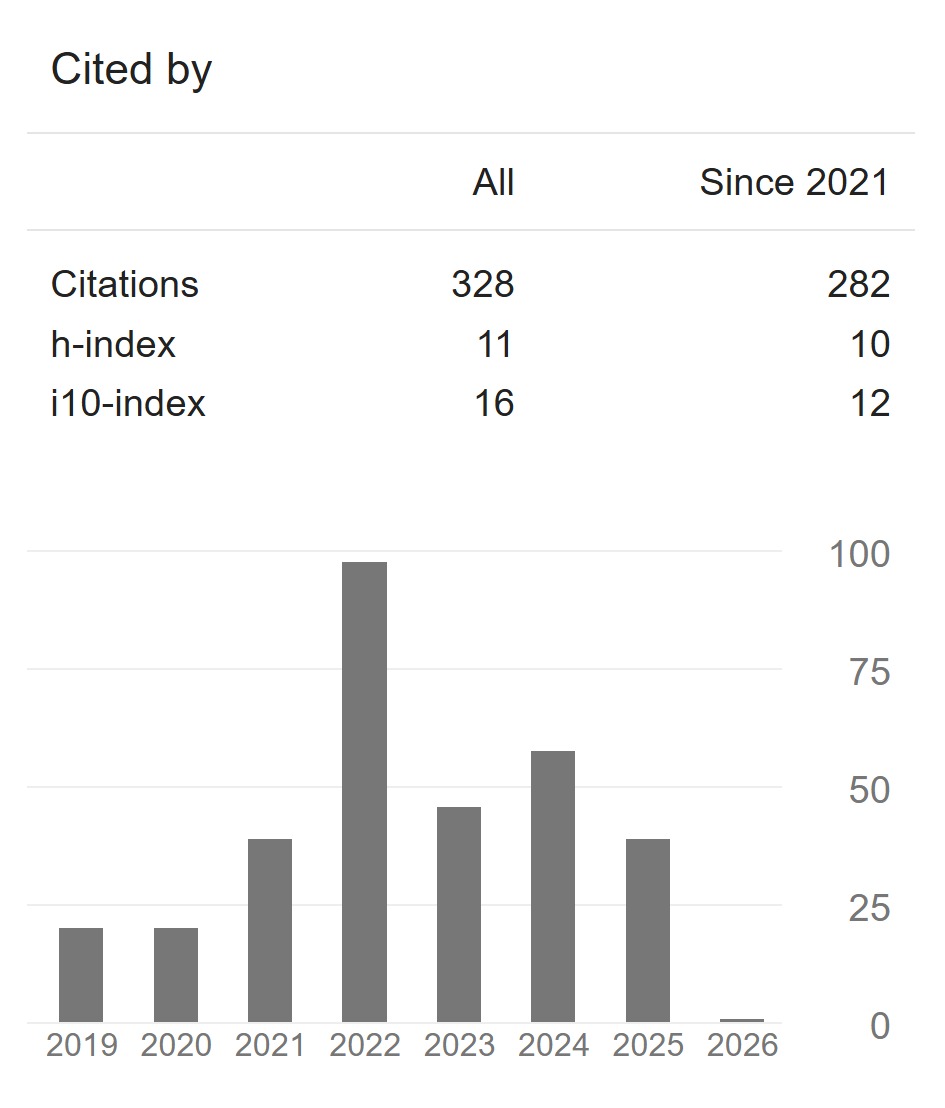Exploring the effects of a serious game on 11th graders’ perceptions of their reading comprehension skills: An action research study in Colombia
DOI:
https://doi.org/10.34069/RA/2024.14.04Palavras-chave:
Serious Games, Reading Comprehension, EFL.Resumo
This research paper presents an action-research study exploring 11th graders’ perceptions of a Serious Game (SG) designed to support English as a Foreign Language (EFL) reading comprehension skills in a state school in Florencia, Caquetá, Colombia. The study involved 33 students from Jorge Eliécer Gaitán high school and adopted a qualitative and descriptive approach for its methodological design. Data collection methods included surveys and focus group interviews, analysed through grounded theory and data triangulation. Findings revealed that students perceived the SG as beneficial for their reading comprehension process, particularly in fostering contextual vocabulary acquisition and providing clear instructional guidance. They also emphasized the positive role of the SG’s graphic design in maintaining engagement and motivation. The study highlights how the students perceived that the SG contributed to creating a motivational and interactive learning environment for reading comprehension improvement. In conclusion, students perceived that the SG enhanced their reading comprehension, engagement, and motivation, fostering active participation in learning activities.
Downloads
Referências
Aguilar-Cruz, P. J., & Álvarez-Guayara, H. A. (2021). A Serious Game to learn English: The case of Bethe1Challenge. International Journal of Serious Games, 8(4), 65-80. https://doi.org/10.17083/ijsg.v8i4.448
Aguilar Cruz, P. J. (2022). Understanding students’ engagement with a Serious Game to learn English: A sociocultural perspective. International Journal of Serious Games, 9(4), 137–152. https://doi.org/10.17083/ijsg.v9i4.554
Aguilar-Cruz, P. J., Wang, P., Xiang, Z., & Luo, H. (2023). Factors Influencing Game-Based Learning in the Colombian Context: A Mixed Methods Study. Sustainability, 15(10), 7817. https://doi.org/10.3390/su15107817
Al-Azawi, R., Al-Faliti, F., & Al-Blushi, M. (2016). Educational gamification vs. game based learning: Comparative study. International Journal Of Innovation Management And Technology, 7(4), 131-136. https://doi.org/10.18178/ijimt.2016.7.4.659
Alyousef, H. (2006). Teaching Reading Comprehension to ESL/EFL Learners. Journal of Language and Learning, 5(1).
Chen, H. J. H., & Hsu, H. L. (2019). The impact of a serious game on vocabulary and content learning. Computer Assisted Language Learning, 33(7), 811-832. https://doi.org/10.1080/09588221.2019.1593197
Godwin-Jones, R. (2014). Games in language learning: Opportunities and challenges. Language Learning & Technology, 18(2), 9–19. http://dx.doi.org/10125/44363
Creswell, J. W. (2012). Educational research: Planning, conducting, and evaluating quantitative and qualitative research (4th ed.). Pearson Education, Inc.
Deng, L., Daverpanah, N., & Izadpanah, S. (2023). The effect of educational computer games on the academic resilience, academic self-regulation, and academic achievement of EFL students. Frontiers In Psychology, 13, 947577. https://doi.org/10.3389/fpsyg.2022.947577
Gu, P. Y. (2018). Validation of an online questionnaire of vocabulary learning strategies for ESL learners. Studies in Second Language Learning and Teaching, 8(2), 325-350. https://doi.org/10.14746/ssllt.2018.8.2.7
Guillén-Nieto, V., & Aleson-Carbonell, M. (2011). Serious games and learning effectiveness: The case of It’s a Deal! Computers & Education, 58(1), 435-448. https://doi.org/10.1016/j.compedu.2011.07.015
Hanandeh, A., Abdullah, Z., & Harun, J. (2018). The effects of a serious game activity and learning tasks on students’ motivation towards reading skill. In 2018 IEEE 10th International Conference on Engineering Education (ICEED). https://doi.org/10.1109/iceed.2018.8626938
Haruna, H., Hu, X., Chu, S. K. W., & Mellecker, R. R. (2019). Initial Validation of the MAKE Framework: A Comprehensive Instrument for Evaluating the Efficacy of Game-Based Learning and Gamification in Adolescent Sexual Health Literacy. Annals of Global Health, 85(1), 1–7. https://doi.org/10.5334/aogh.1110
Kanmaz, A. (2022). Teachers’ Reading Comprehension and Use of Reading Strategies Levels: A Study on the Secondary School Teachers. Education Quarterly Reviews, 5(5). https://doi.org/10.31014/aior.1993.05.01.413
Kiili, K. (2005). On educational game design: Building blocks of flow experience (Doctoral dissertation), Tampere University of Technology.
Kumar, R. (2018). Research methodology: A step-by-step guide for beginners (5th ed.). Sage.
Merriam, S. B., & Tisdell, E. J. (2015). Qualitative research: A guide to design and implementation (4th ed.). John Wiley & Sons.
Pardede, P. (2019). Print vs Digital Reading Comprehension in EFL: A Literature Review. JET (Journal of English Teaching), 5(2),77. https://doi.org/10.33541/jet.v5i2.1059
Perfetti, C. A., Landi, N., & Oakhill, J. (2005). The Acquisition of Reading Comprehension Skill. En Blackwell Publishing Ltd eBooks. pp. 227-247. https://doi.org/10.1002/9780470757642.ch13
Pickren, S. E., Stacy, M., Del Tufo, S. N., Spencer, M., & Cutting, L. E. (2021). The Contribution of Text Characteristics to Reading Comprehension: Investigating the Influence of Text Emotionality. Reading Research Quarterly, 57(2), 649-667. https://doi.org/10.1002/rrq.431
Ritterfeld, U., Cody, M., & Vorderer, P. (2009). Serious Games Mechanisms and Effects. Routledge, Taylor & Francis Group.
Sun, L., Kangas, M., Ruokamo, H., & Siklander, S. (2023). A systematic literature review of teacher scaffolding in game-based learning in primary education. Educational Research Review, 40, 100546. https://doi.org/10.1016/j.edurev.2023.100546
Solano, L., Cabrera, P., Ulehlová, E., & Espinoza, V. (2017). Exploring the use of educational technology in EFL teaching: A case study of primary education in the south region of Ecuador. Teaching English with Technology, 17(2), 77–86.
Tlili, A., Hattab, S., Essalmi, F., Chen, N., Huang, R., Kinshuk, R., Chang, M., & Burgos, D. (2021). A Smart Collaborative Educational Game with Learning Analytics to Support English Vocabulary Teaching. International Journal Of Interactive Multimedia And Artificial Intelligence, 6(6), 215. https://doi.org/10.9781/ijimai.2021.03.002
Vasilachis, A., Sautu, R., Domínguez, M., & Eizagirre, I. (2009). Estrategias de investigación cualitativa. Gedisa.
Vaughn, S., Schumm, J. S., & Sinagub, J. M. (1996). Focus group interviews in education and psychology. Sage.
Downloads
Publicado
Como Citar
Edição
Seção
Licença
Copyright (c) 2024 Willinton Martínez González, Yeisson Reyes Colorado, Paola Julie Aguilar-Cruz

Este trabalho está licenciado sob uma licença Creative Commons Attribution 4.0 International License.

























